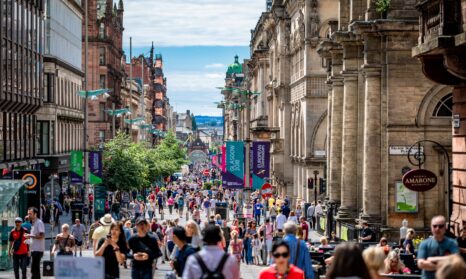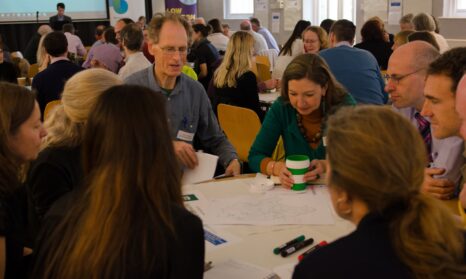Bioregional appointed to help Cambridgeshire with its climate emergency response
Working together with sustainability engineers Etude, Bioregional has been awarded the contract for Greater Cambridge Local Plan Net Zero Carbon Evidence Base by Greater Cambridge Shared Planning, a strategic partnership between Cambridge City and South Cambridgeshire District Councils. Both local authorities declared a climate emergency in 2019, committing to achieving net-zero carbon emissions by 2050 in a bid to limit the devastating impacts of climate change.
Bioregional and Etude will be supporting the shared planning service – one of the largest planning services in the East of England, operating in one of the fastest-growing economies in the UK – to adapt its Local Plan to achieve its Net Zero Carbon 2050 goal. This will be achieved by preparing an evidence base to determine how the target should be defined and accounted for, what measures will be necessary in key sectors, including costings and feasibility, and the potential role (if any) of offsetting.
Ronan Leyden, Head of Sustainable Places at Bioregional, says:
“Greater Cambridge is committed to turning its Climate Emergency declaration into tangible carbon-reduction actions. With time quickly running out to address the issue, we will be setting out a route map to net-zero carbon. This will involve looking at which areas are most suitable for development and the form that development should take, taking into account the need for people to keep going about their lives while keeping carbon emissions to an absolute minimum.
It’s really exciting for us to be involved in exploring how this wonderful city could develop into an example of how to grow in a way that enables truly sustainable living.”
Thomas Lefevre of Etude says:
“We are really excited to work with Bioregional on the carbon evidence base for the Local Plan: it is a great opportunity to establish clearly what is required to achieve Net Zero Carbon and demonstrate that it is technically feasible and economically viable. ”
Greater Cambridge is one of a number of major local authorities with whom Bioregional is working on climate and ecological emergency responses, including most recently Cherwell District Council.
Bioregional – alongside environmental data consultancy Aether – has been helping Cherwell District Council create an ‘internal’ carbon management plan. This includes the council’s current carbon footprint and baseline and a number of scenarios as to how it could achieve a 2030 carbon neutrality target. In addition, Bioregional has created an ‘external’ district-wide carbon neutrality plan that highlights how the district as a whole could reach an aspirational 2030 target.
Bioregional is also now finalising a review of Cherwell District Council’s current planning policies (including the local plan and relevant SPDs) against the region’s current carbon emissions and projected changes to its climate in coming decades, to support ambitious action on the declared climate emergency. This will explore how Cherwell can improve the environmental performance and climate adaptation of new buildings as well as existing housing, commercial properties and green space.
Ronan concludes: “Local authorities can be at the heart of our collective efforts to halt runaway climate change and mass extinction of life on Earth – but the challenges are complex. Bioregional has been working with local authorities for decades to develop replicable and scale-able solutions and it is our aim to provide an emergency response that can deliver a better future for local government areas by achieving net-zero carbon, restoring biodiversity, alongside the creation of communities, jobs and economies for a sustainable future.”







